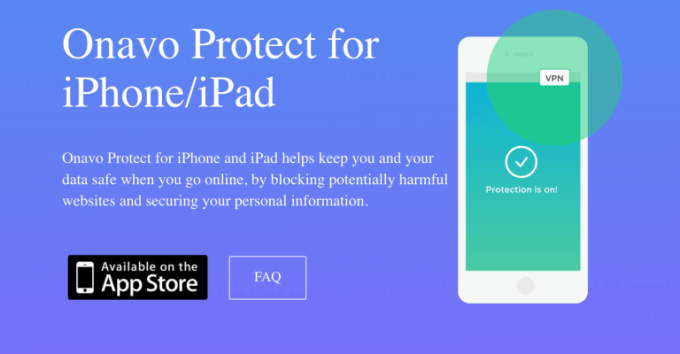Facebook will end its unpaid market research programs and proactively take its Onavo VPN app off the Google Play store in the wake of backlash following TechCrunch’s investigation about Onavo code being used in a Facebook Research app the sucked up data about teens. The Onavo Protect app will eventually shut down, and will immediately cease pulling in data from users for market research though it will continue operating as a Virtual Private Network in the short-term to allow users to find a replacement.
Facebook has also ceased to recruit new users for the Facebook Research app that still runs on Android but was forced off of iOS by Apple after we reported on how it violated Apple’s Enterprise Certificate program for employee-only apps. Existing Facebook Research app studies will continue to run, though.
A Facebook spokesperson confirmed the change and provided this statement “Market research helps companies build better products for people. We are shifting our focus to reward-based market research which means we’re going to end the Onavo program.”
With the suspicions about big tech giants and looming regulation leading to more intense scrutiny of privacy practices, Facebook has decided that giving users a utility like a VPN in exchange for quietly examining their usage of other apps and mobile browsing data isn’t a wise strategy. Instead, it will focus on paid programs where users explicitly understand what privacy they’re giving up for direct financial compensation.

Facebok acquired Onavo in 2013 for a reported $200 million to use its VPN app the gather data about what people were doing on their phones. That data revealed WhatsApp was sending far more messages per day than Messenger, convincing Facebook to pay a steep sum of $19 billion to buy WhatsApp. Facebook went on to frame Onavo as a way for users to reduce their data usage, block dangerous websites, keep their traffic safe from snooping — while Facebook itself was analyzing that traffic. The insights helped it discover new trends in mobile usage, keep an eye on competitors, and figure out what features or apps to copy. Cloning became core to Facebook’s product strategy over the past years, with Instagram’s versions of Snapchat Stories growing larger than the original.
But last year, privacy concerns led Apple to push Facebook to remove the Onavo VPN app from the App Store, though it continued running on Google Play. But Facebook quietly repurposed Onavo code for use in its Facebook Research app that TechCrunch found was paying users in the U.S. and India ages 13 to 35 up to $20 in gift cards per month to give it VPN and root network access to spy on all their mobile data.
Facebook ran the program in secret, obscured by intermediary beta testing services like Betabound and Applause. It only informed users it recruited with ads on Instagram, Snapchat and elsewhere that they were joining a Facebook Research program after they’d begun signup and signed non-disclosure agreements. A Facebook claimed in a statement that “there was nothing ‘secret’ about this”, but it had threatened legal action if users publicly discussed the Research program.
But the biggest problem for Facebook was that its Research app abused Apple’s Enterprise Certificate program meant for employee-only apps to distribute the app outside the company. That led Apple to ban the Research app from iOS and invalidate Facebook’s certificate. This shut down Facebook’s internal iOS collaboration tools, pre-launch test versions of its popular apps, and even its lunch menu and shuttle schedule to break for 30 hours, causing chaos at the company’s offices.
In an attempt to preempt any more scandals around Onavo and the Facebook Research app or Google stepping in to block the apps, Facebook is now taking Onavo off the Play Store and stopping recruitment of Research testers.